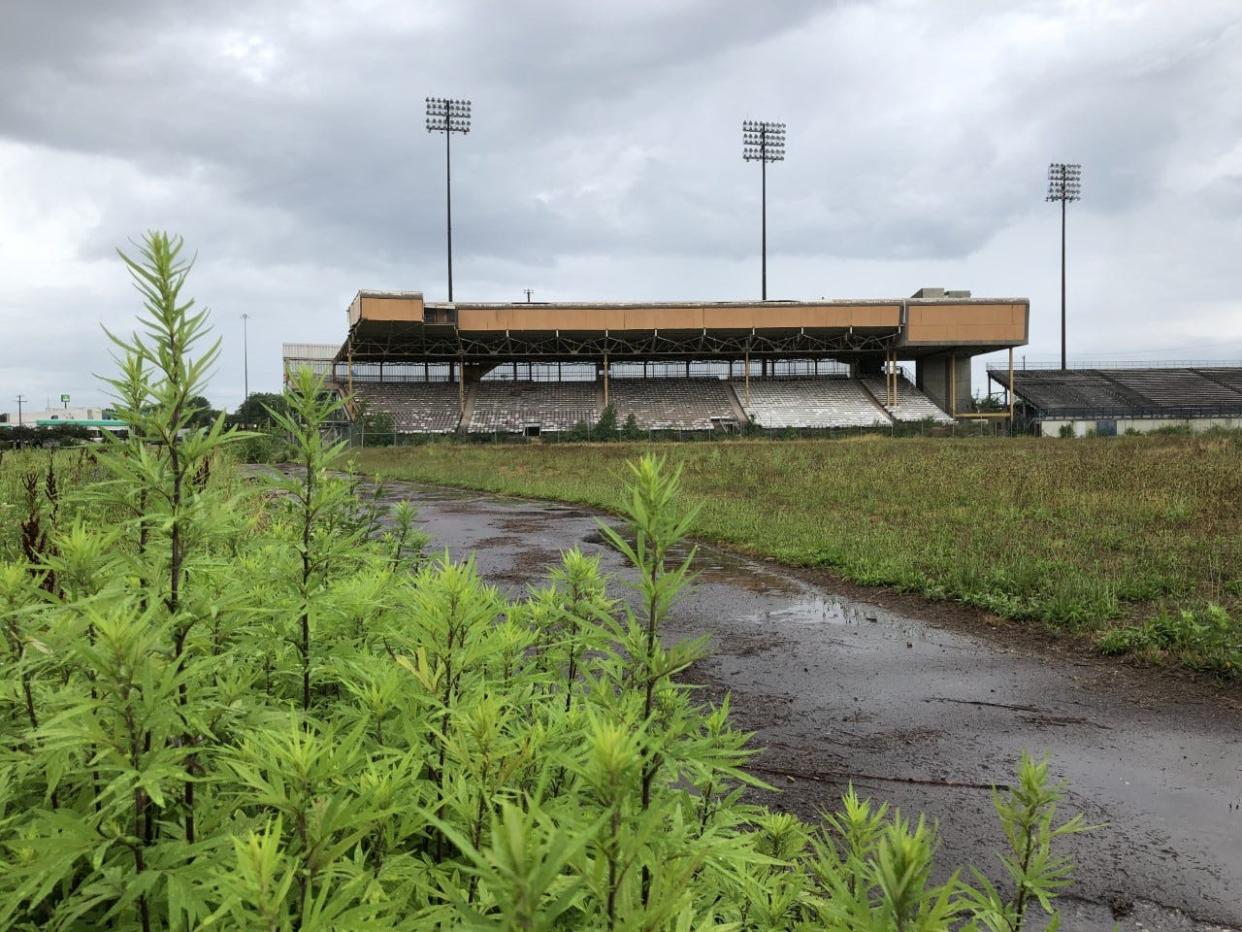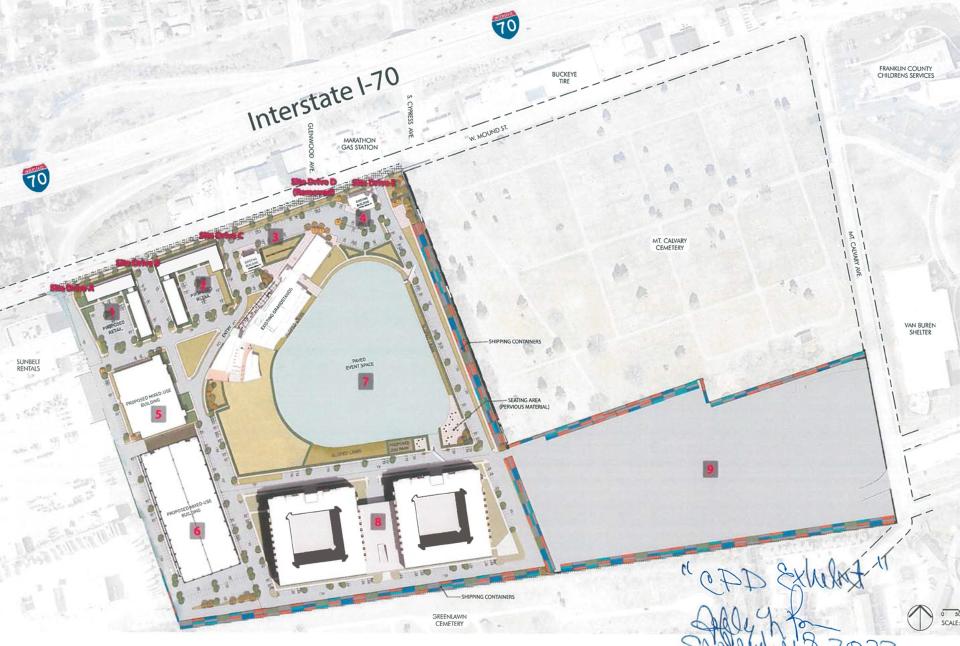New mixed-use development with apartments, retail and more proposed for old Cooper Stadium

Cooper Stadium, the long-shuttered, landmark Columbus baseball stadium built in 1932, would become a mixed-use development with apartments, retail space, a potential amphitheater using part of the old grandstand, and other possible uses under a proposed plan unveiled Monday evening at the Columbus City Council meeting.
The council read into the record on first reading two ordinances that would rezone the property and provide building variances to relax parking and other city requirements at the 47.2-acre site that Franklin County sold in 2012 to the SPARC Holding LLC development firm, which had said it intended to turn the site into an auto-research facility and race track.
"This ordinance gets rid of that and would allow for true mixed-use," said Nya Hairston, a spokesperson for City Council.
After that sale, part of the old, natural-grass stadium that was home to the Columbus Clippers minor league triple A baseball team until the team moved to a new Huntington Park in 2008, was demolished. But the site has since sat unused and decaying in the shadow of Downtown.

The plan, which is now poised to be approved by City Council on a second reading next week, is spelled out in documents attached to the legislation: new retail buildings, apartments and a limited use of the remaining grandstands of the baseball stadium for "spectator events," such as those that "may be conducted in any outdoor amphitheater" with a special permit.
The new zoning also could potentially allow "research laboratories, and wholesaling, distributing, and warehousing uses," according to the ordinance. The first phase of development would create up to 51,440 square feet of office space, up to 13,440 square feet of retail space, and up to 200 apartment units, the rezoning ordinance says.
The ordinance spelling out variances indicates that up to 550 apartments may ultimately be constructed, with a building of six stories in height, and may include such thing as gathering spaces, a swimming pool, fitness center, business office and dog park.
The plan also speaks of stacking "shipping containers" as a permitted use.
The developer "proposes to secure the perimeter of the site by placing shipping containers" in certain areas, which "may also be modified to serve as additional office, retail and/or storage space," but not residential space. If the residential development hasn't occurred within two years of the zoning and variance changes, the containers must be removed.
"Otherwise, the applicant may elect to maintain some or all of the shipping containers on the site permanently, and replace the same as necessary, in the sole discretion of the applicant," a proposed ordinance says. A line of shipping containers "shall be a minimum of two containers in height and may be two or three containers in depth," and could go as high as three containers, or placed on their ends vertically," but can't exceed 40 feet.
Plantings would be installed on the containers "facing the adjacent property along the east side of the site to provide more screening of the containers."
"The last time I saw any plans, they actually had shipping containers being used as barriers, like a fence," said Anthony Celebrezze, a spokesperson for the city Building and Zoning Department. "They were going to put some stuff in the shipping containers."
Because homeless people have been trespassing on the property, located at 1155 W. Mound St., Celebreeze said the developers "are proposing using some of these shipping containers like a wall almost."
In 2019, The Dispatch reported that the old Cooper Stadium had become a public nuisance and a hazardous building, with numerous code violations, including for high weeds and trash. An attorney for the Arshot Investment Corporation, the entity that formed SPARC — which stands for Sports Pavilion & Automotive Research Complex — said trespassers had cut through a fence and had broken into the stadium structure.
Arshot had bought the stadium for $3.4 million in 2012. City Council then quickly approved a 10-year, 75% property tax abatement that year for what Arshot proposed: a $40-million project that included an auto racing track with seating for 8,500 spectators, with an adjacent automotive research facility. But after part of the stadium was torn down in 2014, that plan struck out.
"After many years and many different proposals, I'm hopeful that this rezoning legislation will finally bring forth new development on the former Cooper Stadium site," said Councilmember Rob Dorans, who heads the council's Zoning Committee. "The proposal has received support from the (Southwest) Area Commission made up of local residents, the Development Commission and city staff.
"This is an important and historical property in the Franklinton area, and the proposed redevelopment is poised to bring needed housing and development to this area of the city."
wbush@gannett.com
@ReporterBush
This article originally appeared on The Columbus Dispatch: Apartments, retail and more proposed for old Cooper Stadium property

